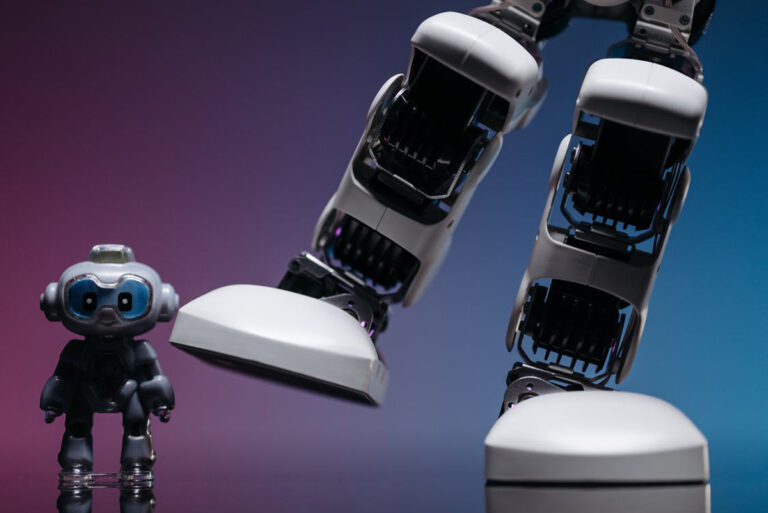South Korea is introducing pint-sized robots in preschools to prepare children for the AI age
Technology conquering the human world is a fear many people have—a dreadful prediction that often comes in the form of humanoid robots. Although the complex worlds of AI and metal machines are still a cause of concern for most of us as they continue to slowly merge with our daily lives, South Korea seems to be on a whole other page. Instead, the country’s government is willingly introducing robots to society, starting with the bright-eyed and bushy-tailed youth in its capital city of Seoul. While robots interacting with kids for educational purposes is not entirely new either—they are already being used to teach social skills to children with autism—the new tech-based teaching aids being tested in kindergartens to assist children with their learning is a first. And it’s going on as we speak. Here’s how it works.
As initially reported in The Guardian, Seoul’s government shared that the city is home to a pilot project that aims to help prepare young minds for a high-tech future. 300 nurseries and childcare centres are currently trialling the robots, with the government recommending the programme for children aged three to five.
Though pint-sized, the ‘Alpha Mini’, manufactured by UBTECH Robotics, is making its grand debut into academic services. Designed with the purpose of being educational, the robot is by no means a toy—it is specifically tailored to help teachers in the classroom with young children. Standing 24.5 centimetres tall, the robot assistant is capable of carrying out a multitude of tasks including dancing, leading sing-alongs and reciting stories. The Alpha Mini is also equipped with the ability to teach kung fu as children can mimic its push-ups and one-legged balances. Pretty neat, right? Almost makes you forget about Terminator-esque scenarios.
And for good reasons—they aren’t as scary as you’d think. Designed with kid-friendliness at its core, the robot’s eyes can wink, blink and turn. What’s more is that its pupils can also become heart-shaped during conversations. If that wasn’t enough, it can even sneeze. With a camera attached to its helmet, it can additionally take photos that are then sent to a tablet for viewing. Alpha Mini comes geared to go and pre-installed with a range of features including an HD camera, a whopping 14 servo motors, three sensors, four microphones, smooth stereo sound and even a gyroscope. The robots are configured to work with Windows PC, iOS and Android tablet programmes and can recognise around 75 voice commands in English. The futuristic little helpers can interact both naturally and intuitively, and come with a facial recognition system which allows them to easily follow children’s actions so they can quickly bond with bots—thereby breaking the ice with technology as a whole.
What’s even more interesting about these handy-dandy droids is that children can help programme them too. Kids can help out in class and use the Alpha Mini to learn more about mechanics and computer science. The Guardian also noted the case of teacher Byun Seo-yeon, who visited the happy and lively Maru nursery in Seoul. “The robots help with the kids’ creativity,” Seo-yeon said to Agence France-Presse (AFP).
According to Generation Robots—a European robotics distributor—the Alpha Mini uses AI to “communicate, move and recognise faces and objects.” Anyone can get their hands on these portable bots, though they are valued for €1,200 (just above £1,000). They work as neat and nifty automatons and can create “personalised lessons for individual students or to small groups of pupils.” With the added bonus of being programmable, adults can use them to plan out a variety of activities including: writing, reading, history and mathematics. Generation Robots also retails the Alpha Mini Robot Curriculum (an educational pack) for €60 (£50), along with the robots that allows children to familiarise themselves with the basics of robotech with student and teacher booklets inside.
Han Dong-seog, a member of Seoul government’s child care division also spoke to AFP and gleefully commented, “In the future, knowing how to manage AI and related tools will be very important. We believe having this experience in nursery schools will have a lasting effect throughout their youth and as adults.”
So far, it certainly seems as though the Alpha Mini is welcomed by everyone, especially the students at Maru who are overjoyed with their new bot buddy. It has been adopted as part of a daily schedule for the class of four to five year-old students. They particularly seem to enjoy its ability to “fart” on command, being a highlight during playtime. One very excited student, Lee Ga-yoon, told AFP, “When I tell it to sing, it sings well. I tell it to dance and we dance together.” What more could you ask for?





